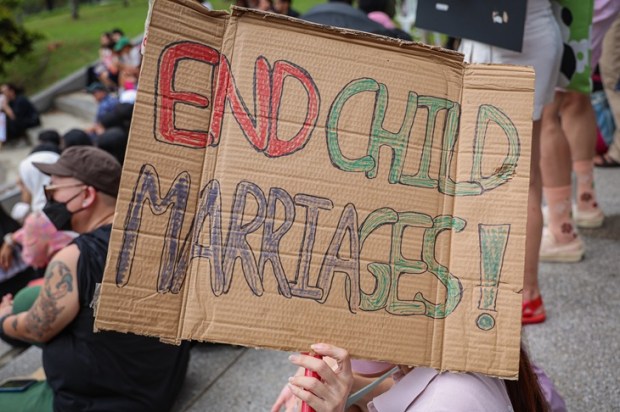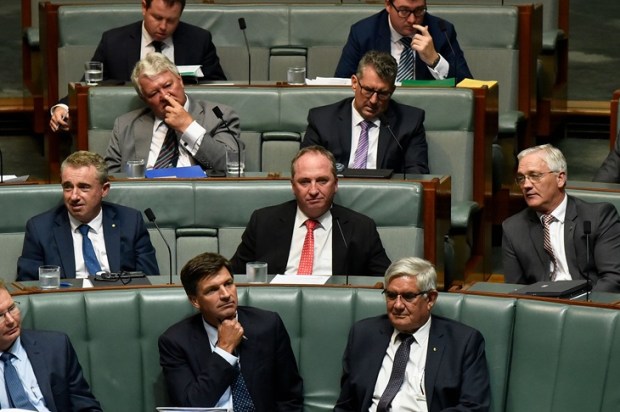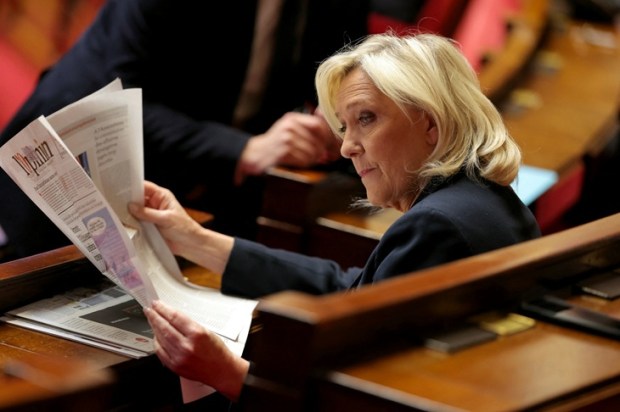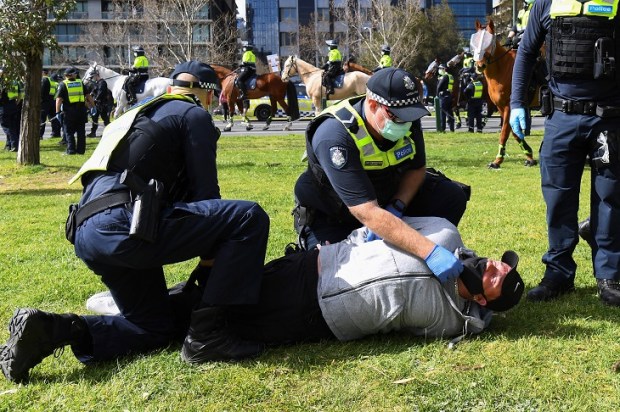Australia has been allowing same-sex marriage since 2017, when the government of Prime Minister Malcolm Turnbull adopted legislation allowing people of the same gender to marry. The government implemented the results of a plebiscite in which 61.60 per cent of voters agreed to redefine the concept of ‘marriage’. This redefinition overturned the traditional understanding of marriage – a union between a man and a woman.
This opinion piece neither revisits nor assesses the definition of ‘marriage’, whether traditional or same-sex marriage. It is not even about the societal consequences of same-sex marriage, including the ‘right’ of same-sex couples to adopt children, or the debate as to whether it is better for children to grow up with a father and a mother. Instead, this piece propounds the argument that the concept of ‘marriage’ has become meaningless and irrelevant because of the inability or unwillingness of politicians, health professionals, and policymakers to define a ‘woman’, and the adoption of laws and policies allowing, or even encouraging, gender transitioning and gender self-identification.
Indeed, when considering the distortion and disembowelment of society’s traditional institutions (including, of course, the institution of ‘marriage’) and values by a woke-infested bureaucracy and government, one thing stands out: a refusal to define concepts, the meaning of which has been uncontested for millennia.
Of course, hostility towards marriage is one of the hallmarks of the feminist movement. Kate Millet, in her popular Sexual Politics, confesses that ‘the complete destruction of traditional marriage and the nuclear family is the revolutionary or utopian goal of feminism’. The major works of these feminists have a common thread: the institution of marriage is the root cause of gender oppression. ‘Their ultimate goal’, writes Carolyn Graglia in the conservative American publication The Weekly Standard:
‘…has been to drive homemakers into the workforce to work as hard as men and thus gain equal political and economic power within an increasingly androgynous society. Indeed, every action of feminism has served this goal, which is why feminists have ardently supported the modern sexual libertinism that has encouraged women to mimic male sexual patterns.’
The thesis that reality is socially constructed is another hallmark of contemporary feminism, which contends that gender roles and behaviour are not influenced by natural biological differences, but socially conditioned and constructed according to the relations of power and domination in society. Inspired by this rejection of biological reality, feminists claim that ‘true understanding arises not from reason, but from observing relations of power and domination’. Accordingly, ‘so-called knowledge is never more than beliefs constructed to justify existing power relationships, and there is no such thing as objective truth on which to base social structure such as marriage and family’. In feminist biology, writes American best-seller author and conservative scholar Nancy Pearcey:
‘…the concept of DNA as the ‘master molecule’ directing the cell’s activities is denounced as a product of masculine bias. The scientific method itself is criticised for incorporating sexist overtones of male dominance and control, which justify the ‘rape of the Earth’.’
Here we are talking about a radical, ideological feminism that works hand-in-glove with transgenderism in debunking the very idea of biological reality and objectivity. These allegations about science and rationality rest on the fallacious premise that knowledge (and modes of reasoning) are entirely social constructs. Inspired by this premise, some feminist scholars contend that knowledge is no more than social beliefs constructed to justify existing power relations, and that there is no objective truth on which to base social institutions such as marriage and family. On this basis, the roles traditionally assigned to men and women are never deemed naturally assigned but always socially determined. Male and female roles are considered arbitrary and indeterminate, and not to be influenced by any form of ‘biological determinism’.
Arguably, this kind of feminist theory is precisely what paved the way for the successful emergence of the transgender movement. This is so because this form of ideological feminism has always insisted on the ‘right’ of individuals to transcend all biological differences so as to achieve personal aspirations. These ideas generated a form of ‘gender relativism’ that ultimately dismantled all protections beneficial to women while doing nothing to eliminate their disadvantages.
In sum, postmodern feminism is the precursor of a transgender movement that pushes for gender fluidity and its policies attempting to consolidate such a fluidity. By prioritising feelings at the expense of science and reason, feminist ideology appears to have facilitated the advance of theories that may sometimes be quite oppressive for women. For example, although the amputation of the clitoris, sometimes the entire vulva, of teenage females for the purposes of ‘gender reassignment’ is now legally possible in most Australian jurisdictions, any attempt by human rights activists to prevent such an irreversible practice is deemed an attack on ‘gender identity’.
In this context, even a perfunctory review of Australia’s Woke scene reveals that successive governments, both Labor and Coalition, have adopted legislation that entrenches this process of obfuscation of biological reality as an ideological tool that effectively promotes the agenda of those who seek to destroy traditional society. The result of this legislative obfuscation includes, but is not limited to, the prohibition of conversion therapy (i.e., change of ‘sex’) legislation, which criminalises any behaviour that could be interpreted as hostile to gender-transitioning, and legislation that gives people the right to self-identify their gender without a medical examination.
‘Conversion therapy’ refers to counselling a person to accept their birth sex instead of their gender identity. Conversely, ‘gender affirmation’ means counselling a person to confirm their gender identity; that is, to affirm being transgender. Curiously, the laws introduced in Australian states make such a therapy acceptable only when applied in one direction (gender affirmation) but not in the other (conversion therapy). Under these laws, Andrew Kulikowsky explains in an article recently published in The Western Australian Jurist:
‘There is no problem with counselling an individual to adopt a gender identity different to their biological sex … even if that person is reluctant to do so. In other words, ‘conversion therapy is fine if practised by homosexual or transgender activists, but [deemed] reprehensible and harmful if practised by religious conservatives’.’
The government, in relying on social engineering laws that are the result of legislative obfuscation, proposes even to remove exemptions for religious schools which, if adopted, will limit their ability to appoint people who subscribe to the schools’ values and principles. The removal of exemption has even become easier for the government following the release, by the United Nations, of a report on Sexual Orientation and Identity, drafted by an independent expert on protection against violence and discrimination based on sexual orientation and gender identity. The author is of the view that, ‘Paying attention to the voices and practices of inclusive communities can help to shift narratives claiming that the exercise of freedom of religion or belief is incompatible with the equal enjoyment of human rights by LGBT persons.’ Hence, ‘Any laws relating to religious exemptions must adhere to international human rights standards and not prevent LGBT people from accessing education, employment or other services.’
These legislative reforms (‘aberrations’ might be a better word) have been facilitated by a bureaucratic rejection of the traditional understanding of basic concepts – this facilitation has proven to be an effective way to undermine society’s values and institutions, especially the institution of ‘marriage’.
Of course, the process of resolutely embarking on the refashioning of Australia into a woke-infested, decidedly left-wing, country – a country hostile to the traditional understanding of marriage – already started in the previous century when government was keen to mandate strong affirmative action policies based on gender, thereby emasculating the concept of ‘merit’, and transferred large chunks of Australia to Indigenous land right groups – lands, which are now inaccessible to other Australians – and creating bloated bureaucratic behemoths to enforce these societal changes.
In this sense, the irrelevance of ‘marriage’ is particularly aggravated by the inability of politicians, health officials, and policymakers to define a ‘woman’. The previous Prime Minister of New Zealand, Chris Hipkins, and the United States Supreme Court Justice, Ketanji Brown Jackson, provide examples of people who refuse to define a woman when interviewed by a journalist and during the nomination process, respectively. When pushed, these influential political and judicial professionals postulate that people themselves make the decision as to which gender they identify with, and/or that the biological issues are too challenging to provide an answer to the question.
In addition, the discernible reluctance to define a ‘woman’, coupled with the right of people to gender self-identification, and the ubiquitous state and territory laws that allow gender transitioning to another sex effectively disembowel the concept of ‘marriage’. This is, because in adopting these social engineering laws, we can no longer guarantee that the person we marry will be of the sex which we expected when entering the marriage contract. Indeed, a woman in a traditional marriage could opt to become a man, and vice versa. In a same-sex setting, one of the partners, relying on the self-identification laws, could decide to assume a different gender.
And how it would be if a person finds herself married with a person of the wrong gender against her will? Because even the birth certificates can now be altered according to hormonal changes and the removal of the genitalia, nothing prevents one from contemplating a situation in which one person marries another person under false premises that the latter was born with a certain biological characteristic of being male or female. Would the annulment of such a marriage be legally possible on grounds of the awkward discovery?
The key point we are making is that marriage becomes irrelevant as an institution in society because gender fluidity destroys the sanctity of the marriage relationship. In this context, Tim Blair, in an interesting article published in Quadrant Online argues that, in such a situation, every marriage could potentially be (or could potentially become) a same-sex union. ‘Labor’s fear and confusion over the status of women make you wonder why they were all so keen on legalising same-sex marriage. What was the point when barely any of them know the difference? From the Left’s point of view, every marriage is potentially same-sex. It just depends on how wedded to their own biology the couple may be at any given time,’ he says.
The reality is that we live in a ‘crazy world’ where what is now perceived as ‘reality’ always becomes entirely subjective. There are no more objective standards by which to access reality and anyone can claim to be whatever they might desire to be. It is precisely in this social context that the transgender movement becomes an aggressive ideology aimed at redefining all human relationships, thus deconstructing the institution of marriage. Indeed, the institution of marriage has lost all its meaning and relevance in our contemporary society.
Gabriël A. Moens AM is an emeritus professor of law at the University of Queensland and served as pro vice-chancellor and dean at Murdoch University.
Augusto Zimmermann is professor and head of law at Sheridan Institute of Higher Education and served as associate dean at Murdoch University. He is also a former commissioner with the Law Reform Commission of Western Australia.
Zimmermann & Moens are the authors of ‘The Unlucky Country’ (Locke Press, 2024).

























